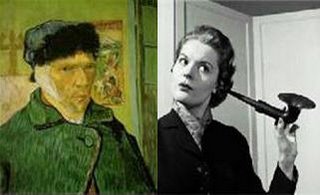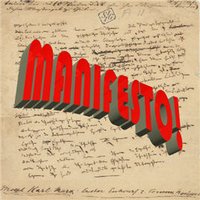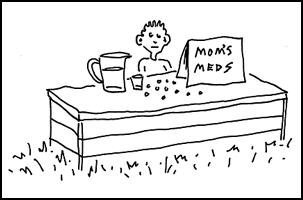"Human beings do not realise the extent to which their own sense of defeat prevents them from doing things they could do perfectly well. The peak experience induces the recognition that your own powers are far greater than you imagined them." – Colin Wilson

Peak experience: A term used to describe certain extra-personal and ecstatic states, particularly ones tinged with themes of unification, harmonization and interconnectedness. Participants characterize these experiences, and the revelations imparted therein, as possessing an ineffably mystical (or overtly religious) quality or essence.
American psychologist and philosopher Abraham H. Maslow (1908-1970) coined this term to describe nonreligious quasi-mystical and mystical experiences. Peak experiences are sudden feelings of intense happiness and well-being, and possibly the awareness of "ultimate truth" and the unity of all things. Accompanying these experiences is a heightened sense of control over the body and emotions, and a wider sense of awareness, as though one was standing upon a mountaintop. The experience fills the individual with wonder and awe. He feels at one with the world and is pleased with it; he or she has seen the ultimate truth or the essence of all things.
Maslow described peak experiences as self-validating, self-justifying moments with their own intrinsic value; never negative, unpleasant or evil; disoriented in time and space; and accompanied by a loss of fear, anxiety, doubts, and inhibitions.
Peak experiences render therapeutic value as they foster a sense of being lucky or graced; release creative energies; reaffirm the worthiness of life; and change an individual's view of himself or herself. Maslow cautioned against seeking such experiences for their own sake; echoing the advice of the mystics who have pointed out that the sacred exists in the ordinary. Maslow further believed that domestic and public violence, alcoholism, and drug abuse stem from spiritual emptiness, and that even one peak experience might be able to prevent, or at least abate, such ills.
I'm not sure what got me mulling over this subject today; could have been a number of things. I was working on a new cd cover and decided to combine an image of George Mallory, the famed lost climber of Everest from the 1920's, with a photo from the recent exploration that discovered his almost perfectly-preserved remains. Sounds gruesome, I know, but the title is going to be "What Was I Thinking?" You'd have to see it to get the joke, I guess. The typical 'me' thought process. Maybe my mind was doing a little free-associating. After all, a lot of therapists incorporate outdoor adventures into their sessions; experiences which are designed to jolt people into feeling the power and mystery associated with connecting with their surroundings. Sometimes these therapies include mountain climbing.
Anyway, I'm here to say that I believe in the existence of these experiences because I've had more than a few over the years and in some very unlikely places. That's what makes them so amazing. You can't practice for them, you can't set up a situation to make one happen. They take you by surprise and there you are, which is the coolest part. My most awe-inspiring one occurred about 16 years ago. Regrettably, I can't completely summon up the exact feeling of that afternoon, but the memory of what it was like is still so powerful that I'm encouraged to feel that I will have more like it someday. It may come tomorrow or it may be another 16 years, but I'm ready whenever it gets here. I'm not going to go into describing the circumstances or talk about who else was present on that extraordinary day. You know who you are, and you know what it was like, and that's all that matters. I just wanted to say thanks for being there. Until next time........


 OK, so I've never asked you guys to do anything except read my little posts, but that's about to change. MTV2 is hosting a national competition on their site for the best bands in cities across the country. The top 2 per state (100 bands total) will put together an audio clip (song + interview) for college campuses around the U.S. to be narrowed down to 12 bands. Those 12 will compete at the MTV2 studios in NY to reduce the field to the finalists (2-3 bands voted on MTV.com) who will perform a live show. The winner gets $50,000, an MTV.com web page, and possible appearances on MTV Rock for a week. RYEWIRE, pictured above, is currently the #1 band in the Seattle area and they rank somewhere around #10 nationally (the other "#1" band on the site didn't register in time and so they're not actually in the running ). Could you take a minute to throw some votes their way?
OK, so I've never asked you guys to do anything except read my little posts, but that's about to change. MTV2 is hosting a national competition on their site for the best bands in cities across the country. The top 2 per state (100 bands total) will put together an audio clip (song + interview) for college campuses around the U.S. to be narrowed down to 12 bands. Those 12 will compete at the MTV2 studios in NY to reduce the field to the finalists (2-3 bands voted on MTV.com) who will perform a live show. The winner gets $50,000, an MTV.com web page, and possible appearances on MTV Rock for a week. RYEWIRE, pictured above, is currently the #1 band in the Seattle area and they rank somewhere around #10 nationally (the other "#1" band on the site didn't register in time and so they're not actually in the running ). Could you take a minute to throw some votes their way? 











 Search is on for original Apollo 11 footage
Search is on for original Apollo 11 footage






















